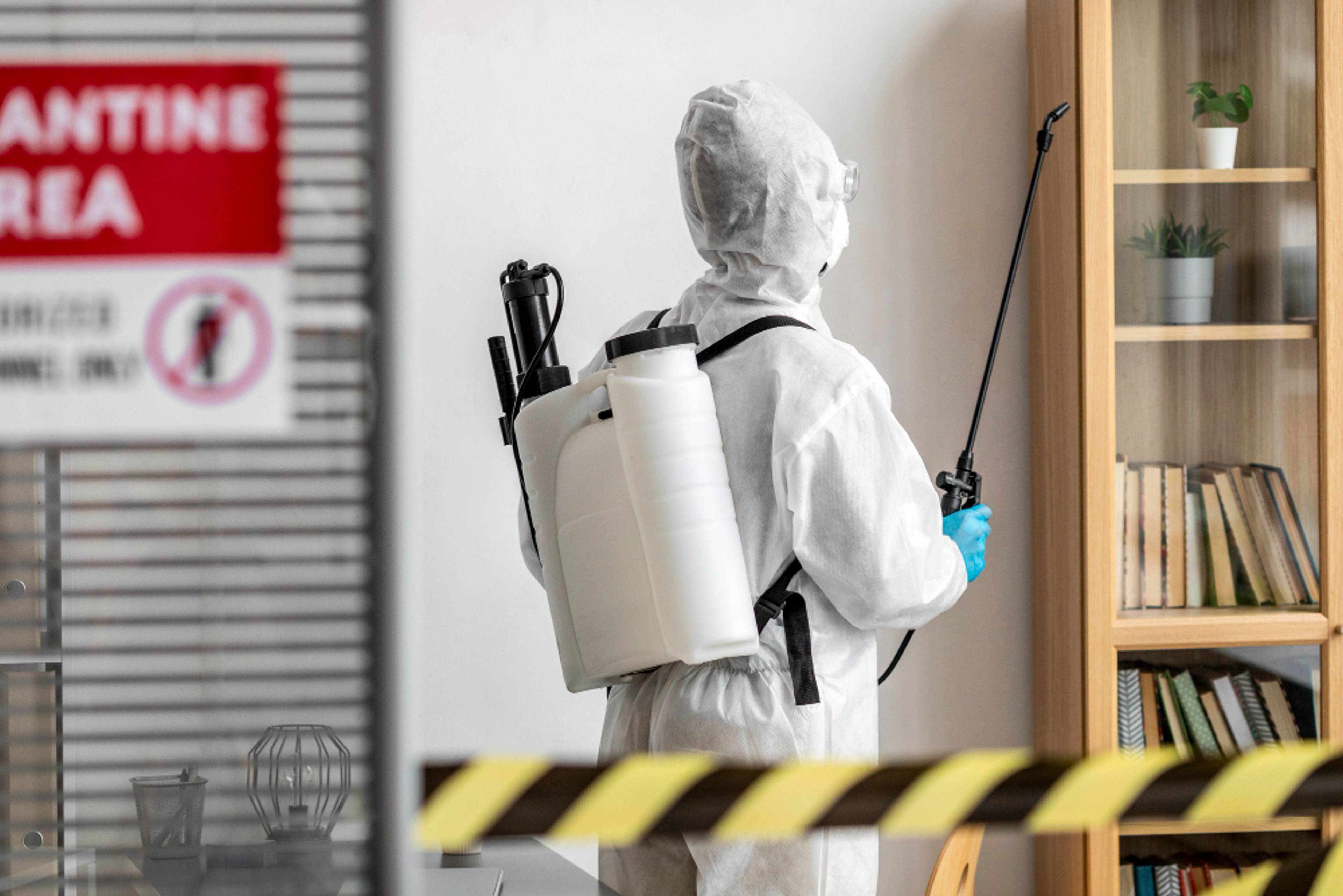When you’re packing your belongings into self-storage, fleas probably aren’t the first thing on your mind. But if you’re storing furniture, clothing, or items that have been around pets, it’s a good idea to make sure you’re not inadvertently storing some unwelcome guests.
Fleas thrive on animals like dogs and cats, feeding on their blood, but they can also bite humans and even survive on fabrics for short periods. The last thing you want is to unpack flea-infested furniture when you retrieve your items.

In this blog, we’ll look at whether fleas can survive in a storage unit, what makes certain items a risk, and how you can protect your belongings from tiny pests. Whether you're storing furniture or personal items, we’ve got you covered with advice to keep your storage space flea-free.
What are fleas and how do they spread?
Fleas are tiny insects that thrive by feeding on the blood of warm-blooded animals like dogs, cats, and even humans. The adult flea can jump onto your pet while they’re out for a walk or playing in the garden, and before you know it, your home could become a refuge for these critters.
Once fleas find their way onto a host, they feed, mate with a female flea, and start laying flea eggs, which can be found on bedding, clothes, carpets, or upholstered furniture. These eggs hatch into flea larvae, which eventually become adults. This entire life cycle can happen in as little as two weeks in the right conditions, which is why flea infestations can spread rapidly.
Can fleas survive in a storage unit?
The good news is that storage units typically aren’t an ideal environment for fleas. Fleas need a warm host (usually a pet) and regular blood meals — Whether it's human blood or animal blood — to survive. Without these conditions, fleas struggle to thrive.
However, fleas—and their eggs—can be quite resilient. While adult fleas need to feed on blood, their flea larvae and pupae can survive for weeks or even months in fabrics or cracks in upholstered furniture. These dormant stages might stay hidden away until they sense a nearby host, waiting for the chance to re-emerge.
So, can fleas survive in a storage unit? Yes, they can survive for weeks, but more importantly, their eggs can lie dormant for months. It’s important to take steps to prevent any chance of a flea infestation in your storage space. If the question is how long can fleas survive, then the answer is weeks, and possibly months for eggs, so make sure your furniture is clean beforehand.

Can fleas live on items for a long time?
Yes, flea eggs, larvae, and pupae can remain dormant for several months, especially in warm conditions. Even if your unit has been untouched for a long time, fleas may still be waiting for a host to return and complete their life cycle. The good news is that without regular feeding, adult fleas can only survive for up to two weeks.
Risks
There are certain risk factors that could lead to an infestation. Items like clothing, bedding, and upholstered furniture can easily harbour flea eggs, larvae, and pupae. If you pack these items without thoroughly cleaning them, fleas could hitch a ride into your storage unit.
A climate-controlled or climate-secure storage unit may reduce the risk of flea survival. this is because fleas prefer warm and humid conditions to hatch. But in personal storage that isn’t climate-secure, fleas might last longer, especially in dark, damp corners, or hiding spots in furniture.

How to prevent fleas from getting into your storage unit
To avoid dealing with fleas in your storage solution, prevention is key. Here are some simple steps to keep fleas out of your unit:
Clean everything thoroughly – Before storing any belongings, make sure to wash all clothing, bedding, and furniture to remove any flea eggs or flea larvae.
Treat items with flea treatments – If you're storing items that were in contact with pets, consider using a flea treatment on upholstered furniture or rugs. This can help kill any remaining fleas, larvae, or eggs.
Use sealed containers – Store soft items like clothing and bedding in airtight, sealed containers to reduce exposure to pests.
Inspect your storage unit – Regularly check your unit for any signs of pests. Even if you haven’t stored pets in your unit, fleas could still hitch a ride on other items.
Keep pets out – If you bring your pets along when loading or unloading your unit, you could unintentionally introduce fleas. Avoid bringing your furry friends to your storage unit for an extra layer of protection.

Signs of a flea infestation in your storage unit
If you’re concerned about fleas in your unit, there are a few signs to look for:
Flea dirt – This looks like small black specks, often found on fabrics or in carpeted areas. It’s actually flea faeces, left behind by adult fleas after feeding.
Flea bites – Flea bites are a big indicator of an infestation. If you’re bitten while inside your unit, you may have fleas lurking in your belongings.
Pet behaviour – If your pets are scratching more after visiting your storage unit, that’s a red flag for fleas.
What to do if you find fleas in your storage unit
Finding fleas in your storage unit isn’t pleasant, but it can be handled quickly. First, isolate the affected items. Take them out of the unit and treat them with flea sprays or wash them thoroughly. If the infestation is widespread, you may need to call in professional pest control for advice on how to rid your unit of fleas.
Additionally, notify your storage service so they can take steps to prevent the infestation from spreading to other units.

Conclusion
Fleas are common pests for storage units, as many people bring their pets along, but can they survive? Possibly. Without blood meals, they likely won't survive very long, fleas need a regular source of blood, warmth, and humidity to thrive, which most storage units don’t provide. However, to avoid any risks, it’s important to clean your belongings thoroughly and store them in sealed containers.
HOLD Self-Storage
If you’re looking for a flea-free environment to store your items, HOLD Self Storage has you covered. With easy access, secure units, and extra space for all your needs, we’re the perfect storage solution to keep your belongings safe—without any unwanted guests. Whether you’re after short-term or long-term storage, our Kings Cross facility is designed to keep pests at bay.

Get in touch with us today for a free quote or to learn more about our services.
Frequently asked questions
Will fleas eventually die on their own?
They can survive for weeks, and eggs can potentially survive even longer. It's a good idea to remove fleas and any other pests from your belongings before putting them into storage.
What notice do I have to give on my storage unit?
We require one month's notice; unused rent and deposit are refunded upon checkout.
Am I charged weekly, monthly or annually?
We bill monthly, but also take pre-payment for longer stays, which can unlock a discount.
Do I need insurance for my belongings?
We offer Store Protect which means that we accept liability of your goods whilst in our care if taken.
What is the minimum storage term?
The minimum storage term is 1 month.

